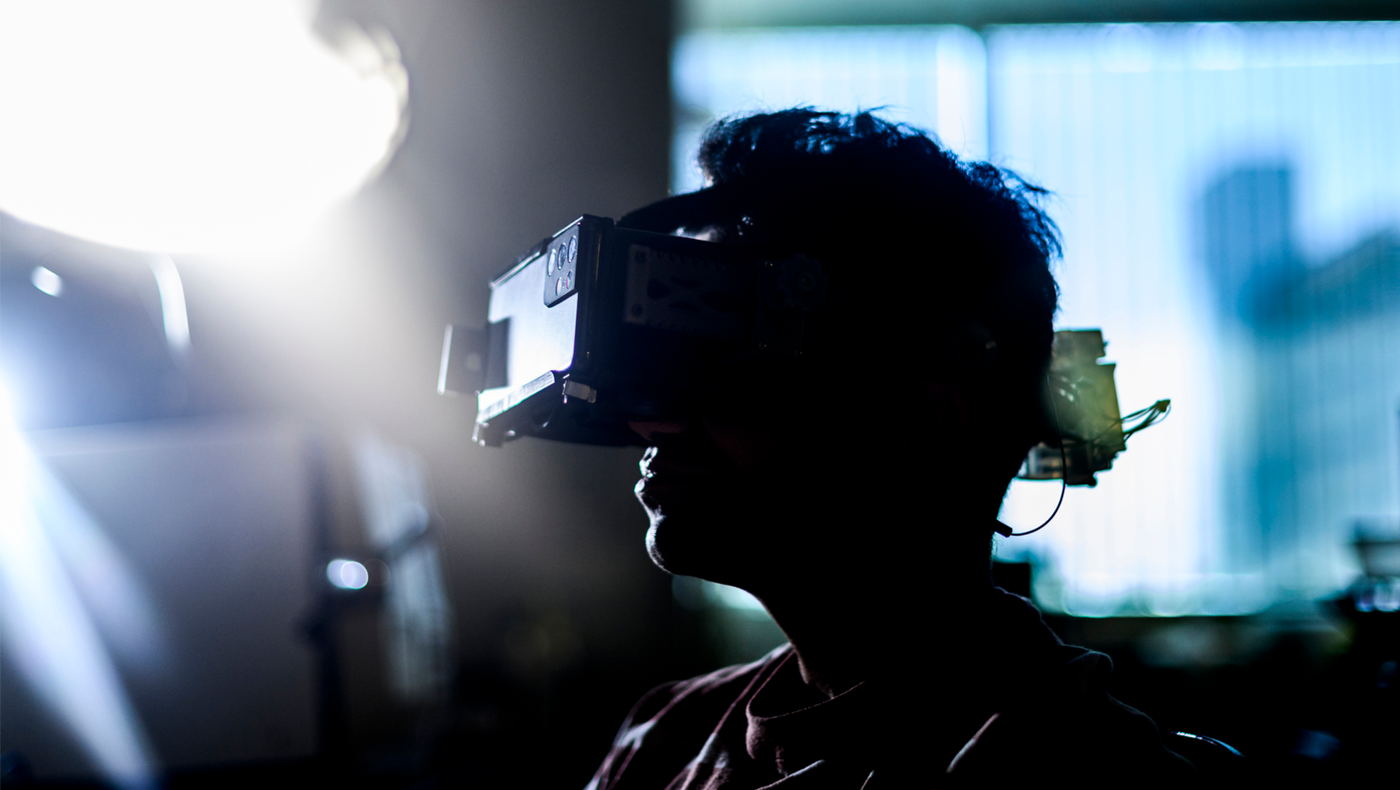It combines a smartphone in a virtual reality headset with a brain sensor and plays podcasts.
But the NeuroVEP’s purpose is not to entertain — its purpose is to diagnose vision and related neurological problems by converting brain signals into a map representing which parts of a user’s visual field may have decreased function.
“After heavy data processing of brain electrical signals, we can deduce what the vision looks like for a person,” Srinivas Sridhar, inventor of the NeuroVEP, says. “From that, we can deduce where the problem is.”
Sridhar, a university distinguished professor of physics, bioengineering and chemical engineering at Northeastern University, associate research scientist Craig Versek, professor of psychology Peter Bex and data scientist Ali Banijamali received a patent for the device this summer, and the team has formed a spin-out company called NeuroFieldz to market the technology.
Read more from Northeastern Global News.
Photo by Matthew Modoono/Northeastern University.

